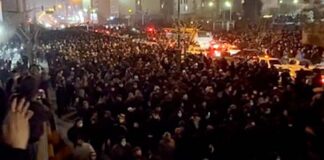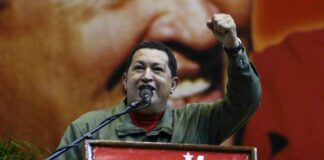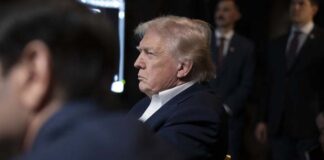After ten long years of war, Afghanistan is no safer, nor is an end date for the conflict any more certain.
The deteriorating security situation and the failure of the occupiers was underscored in September, when Taliban fighters made it into the centre of Kabul. Attacks on the US and other embassies led to gun battles that lasted for 20 hours. It was the second major attack in Kabul in less than a month.
Then at the end of September the head of the government’s “peace council” and former president Burhanuddin Rabbani was assassinated by the Taliban.
Officially, the war is supposed to be drawing to a close, with a deadline for handing over control to Afghan security forces by 2014.
But NATO’s planning meeting in October, in Brussels, committed the West to an ongoing, open-ended, occupation of Afghanistan, well beyond the supposed handover.
The continuing neo-occupation of the war-ravaged country is testimony to the West’s inability to “win” the war. Julia Gillard and Defence Minister Stephen Smith talk about “progress” on the ground. Marc Grossman, the US Special Representative for Afghanistan and Pakistan, has pushed the same contradictory spin. He admitted that the security situation across Afghanistan is “bad”, while hailing “considerable progress”. But the admission that a continuing troop presence after the 2014 deadline is needed undermines such optimism.
Ongoing Australian commitment
Ian McPhedran, News Limited’s defence columnist, outlined the preparations for an ongoing war on October 7, before the NATO meeting:
“According to well-placed sources, the long-term plan includes transforming huge and costly coalition bases, at places such as Tarin Kowt, where Australia has invested millions of dollars, and Kandahar, into training centres and permanent special forces bases.
“This is where elite Australian SAS and commandos would be based for years to come to provide ‘overwatch’ for Afghan forces.”
The commander of the Australian force in Afghanistan, Major General Angus Campbell, told McPhedran that, “Australian troops, including trainers, logistics experts and importantly elite special-forces fighter, will be based in the country well beyond 2014.”
This confirms comments made in August 2010 by the Chief of the Australian Defence Forces (ADF), Angus Houston, about Australian involvement.
The ADF would stay in Afghanistan “well beyond” the 2014 deadline set by the government for an end to Australian involvement, he predicted.
The Australia ruling class sees this as part of maintaining a strong alliance with the US. The US alliance allows Australia to act as the dominant military power in the South Pacific. In return it acts as a loyal ally of the dominant Western imperial power. The ruling class does this in the face of popular, passive opposition to the Afghan war. The deaths of 29 soldiers and hundreds injured and the $1.2 billion a year the war now costs are seen as the premium paid on the US “insurance policy”.
While the West has enough troops to contain the insurgency, they cannot defeat it. And their actions continue to breed further resistance to their occupation. In the first half of 2011, more than 1462 Afghan civilians were killed, up 15 per cent on the same period in 2010.
The US wants to impose its will on Afghanistan, which has the misfortune of lying on a faultline of conflict between the great powers for one and half centuries.
The US has bigger enemies than the Taliban and al-Qaida. Despite the end of the Cold war, it is locked in gigantic, geopolitical rivalry with other imperial powers. And that is why US victory is so important.
For all its military and economic muscle, the geographical position of the US places it offshore to the Eurasian landmass, where the bulk of the world’s population and wealth, including natural resources, is concentrated. That landmass also contains its two main imperial rivals, Russia and China.
The war on terrorism has provided the US with an opportunity to establish a string of military bases in Central Asia—a region closed to it during the Cold War.
Tensions with these other powers are rising. Russia’s envoy to NATO, Dmitry Rogozin said Russia would not agree to a US military presence in Afghanistan after the end of the UN mandate of 2014. Rogozin told the media that the US offer to train armed forces in Afghanistan served only as a “pretext for preserving their military presence. This is something we have never agreed with.”
But after its failure in Iraq, a humiliating defeat in Afghanistan would be a further blow to the credibility of US power, and one it cannot afford.
Tom Orsag





